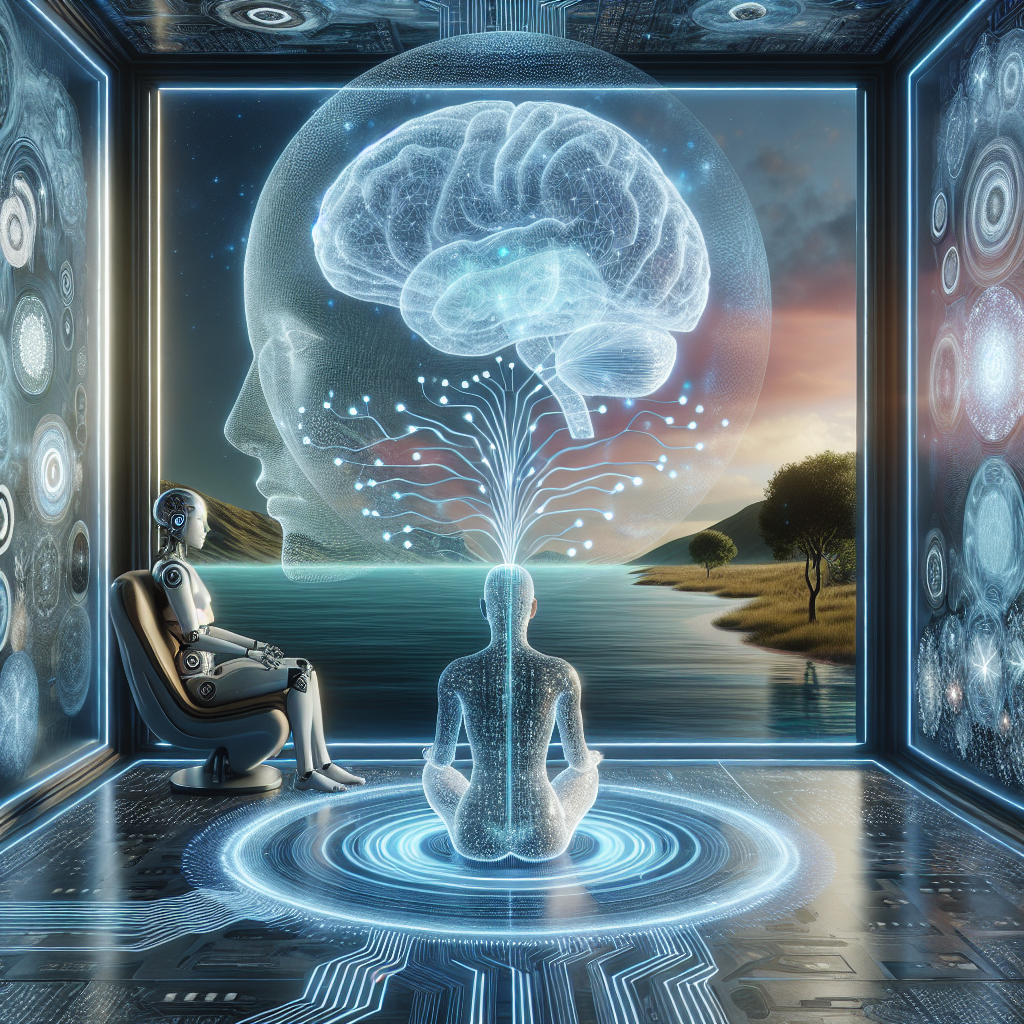The Future of AI Integration in Mental Health Diagnosis
Artificial intelligence (AI) has made significant advancements in various fields, and mental health diagnosis is no exception. AI has the potential to revolutionize the way mental health disorders are diagnosed and treated, making the process more efficient, accurate, and accessible. In this article, we will explore the current state of AI integration in mental health diagnosis and discuss the future possibilities of this technology.
Current State of AI in Mental Health Diagnosis
AI has already been used in various ways to assist in mental health diagnosis. One common application is the use of machine learning algorithms to analyze large amounts of data and identify patterns that may indicate the presence of a mental health disorder. For example, researchers have developed AI algorithms that can analyze speech patterns to detect signs of depression or anxiety.
Another way AI is being used in mental health diagnosis is through the development of chatbots and virtual assistants that can provide support and guidance to individuals experiencing mental health issues. These AI-powered tools can offer immediate assistance to those in need, connect them with resources, and even provide therapy sessions.
In addition to these applications, AI is also being used to improve the accuracy of traditional diagnostic methods. For example, AI algorithms can analyze brain imaging data to help identify patterns that may indicate the presence of a mental health disorder. This can help clinicians make more accurate diagnoses and tailor treatment plans to individual patients.
The Future of AI Integration in Mental Health Diagnosis
As AI technology continues to advance, the possibilities for its integration in mental health diagnosis are endless. One key area of growth is in the development of AI-powered diagnostic tools that can be used by individuals to assess their own mental health. For example, smartphone apps that use AI algorithms to analyze behavioral patterns and detect signs of mental health disorders could become common in the future.
Another exciting possibility is the use of AI to personalize treatment plans for individuals with mental health disorders. By analyzing a patient’s unique characteristics, such as genetics, lifestyle, and environmental factors, AI algorithms can help clinicians tailor treatment plans that are more effective and targeted.
AI is also being used to improve the accessibility of mental health care. In many parts of the world, there is a shortage of mental health professionals, leading to long wait times for treatment. AI-powered tools can help bridge this gap by providing immediate support to individuals in need, connecting them with resources, and offering virtual therapy sessions.
Furthermore, AI has the potential to revolutionize the field of telemedicine by enabling remote diagnosis and treatment of mental health disorders. Through the use of AI-powered chatbots and virtual assistants, individuals can receive immediate support and guidance from the comfort of their own homes.
FAQs
Q: Can AI accurately diagnose mental health disorders?
A: While AI has shown promising results in diagnosing mental health disorders, it is important to note that it is not a replacement for a qualified mental health professional. AI tools should be used as a supplement to traditional diagnostic methods and not as a standalone diagnostic tool.
Q: Is AI integration in mental health diagnosis ethical?
A: Ethical considerations are an important aspect of integrating AI in mental health diagnosis. It is essential to ensure that AI tools are developed and used in a responsible and ethical manner, with a focus on patient privacy, autonomy, and informed consent.
Q: Will AI replace human clinicians in mental health diagnosis?
A: AI is not intended to replace human clinicians in mental health diagnosis but rather to assist them in making more accurate diagnoses and providing personalized treatment plans. Human clinicians bring a unique level of empathy, understanding, and expertise that AI cannot replicate.
Q: How can individuals access AI-powered mental health tools?
A: There are a growing number of AI-powered mental health tools available to the public, including smartphone apps, chatbots, and virtual assistants. Individuals can access these tools through app stores, online platforms, and mental health organizations.
Q: What are the potential benefits of AI integration in mental health diagnosis?
A: The potential benefits of AI integration in mental health diagnosis include improved accuracy of diagnosis, personalized treatment plans, increased accessibility to mental health care, and reduced stigma associated with seeking help for mental health issues.
In conclusion, the future of AI integration in mental health diagnosis is bright, with the potential to revolutionize the way mental health disorders are diagnosed and treated. By leveraging the power of AI technology, we can improve the accuracy, efficiency, and accessibility of mental health care, ultimately leading to better outcomes for individuals experiencing mental health issues.

